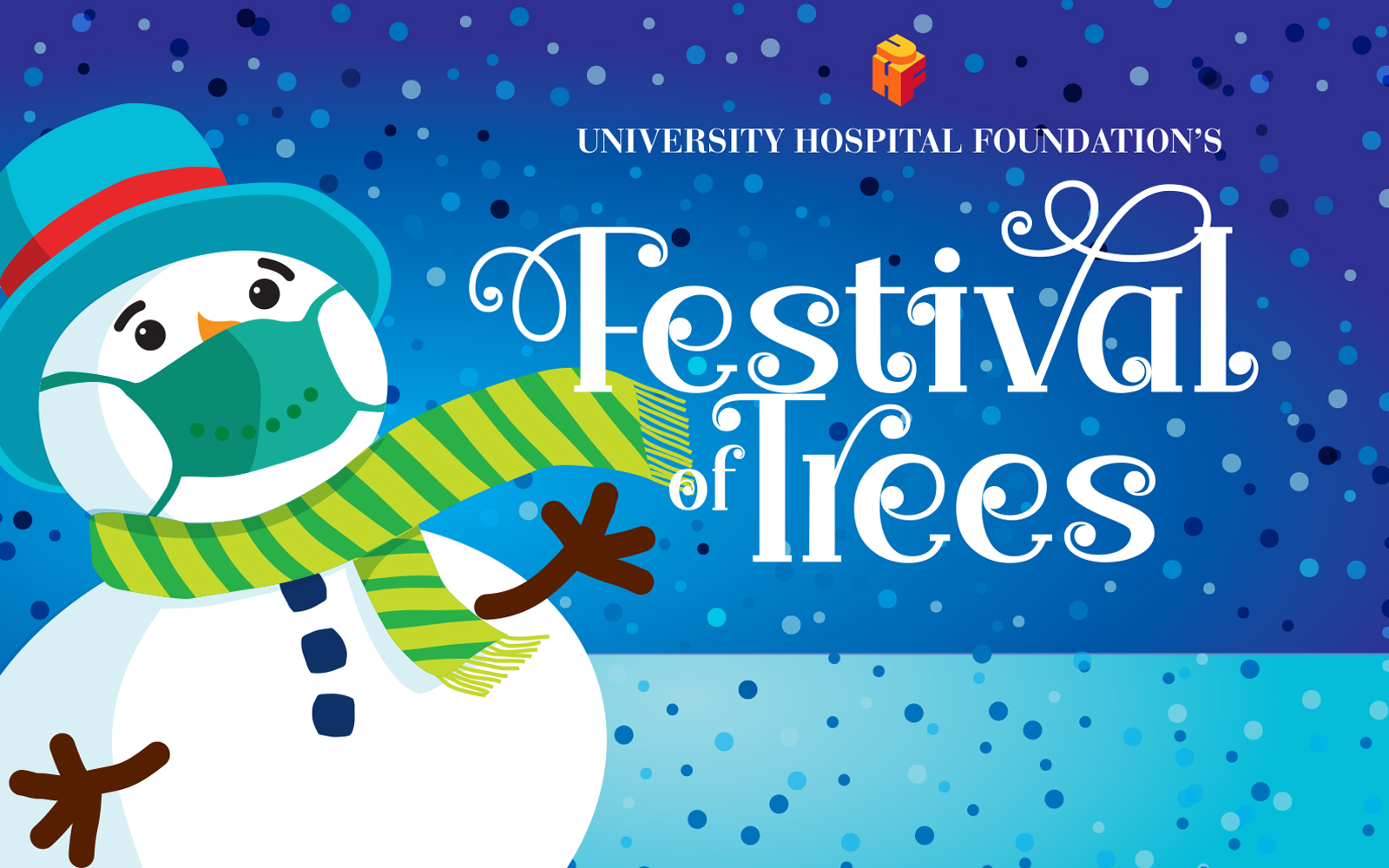A festive fundraiser supporting groundbreaking Alzheimer’s research
Ryan O’Byrne and Adrianna MacPherson - 23 November 2020

A staple of Edmonton’s holiday season is bringing Christmas cheer to the city, along with an important boost to University of Alberta researchers working to find a treatment for Alzheimer’s disease.
The University Hospital Foundation’s (UHF) Festival of Trees event is now underway. After more than three decades of events filled with beautifully decorated trees and seasonal cheer, the fundraising event looks a bit different due to restrictions imposed by the COVID-19 pandemic. This year’s activities have gone virtual, including Storytime with Mrs. Claus, a Festival in a Box initiative that allows supporters to indulge at home, an online auction and even a one-on-one video call with Santa.
As always, philanthropy is at the heart of the event, something U of A distinguished university professor and neurologist Jack Jhamandas lauds.
“Philanthropy is very critical in allowing people to do what I call high-risk, high-reward science, and the UHF has always been a champion of that type of research, not only in neuroscience but in many other areas of medicine and health,” said Jhamandas.
Jhamandas, who is also a member of the Neuroscience and Mental Health Institute, has found a piece of the Alzheimer’s puzzle, bringing him closer to a treatment for the disease. It’s his promising research project that UHF is funding with this year’s Festival of Trees.
Jhamandas and his team discovered that AC253, a compound originally developed to treat diabetes, can block the toxic effects of the protein amyloid beta, believed to be a major contributor to Alzheimer's. However, treatment using injectable AC253 requires large amounts to be effective because it is metabolized so quickly. A pill version would address the metabolism issues and increase efficacy, but AC253 is too complex to make an effective oral drug. By cutting it into smaller pieces, the team found that two short peptides replicated the preventive and restorative abilities of the larger one.
When injected into mice with Alzheimer's disease daily for five weeks, the peptides significantly improved the mice's memory. The treatment also reduced some of the harmful physical changes in the brain associated with the disease.
Jhamandas and his team, which includes renowned virologists Lorne Tyrrell, and Nobel Prize winner Michael Houghton, are using computer modelling and artificial intelligence to develop a small-molecule drug for Alzheimer's, much like medications available to treat high blood pressure or cholesterol.
The team is currently manufacturing an optimized, oral version of the drug for testing in mice that will pave the way for human clinical trials to begin, said Jhamandas, adding small-molecule drugs are preferable because they are cheaper to make, can be taken orally and can more easily reach the brain through the blood.
“Dr. Jhamandas’ research could change the future of one of the most devastating brain conditions of our time, impacting not only people in our own community, but millions of people all over the world,” said Jodi Abbott, UHF president & CEO. “Support from the University Hospital Foundation and Festival of Trees supporters will allow Dr. Jhamandas and his team to begin human clinical trials sooner and advance their research. Together we could make Alzheimer’s disease a mere memory.”
There are still a few steps to go before human clinical trials, including toxicity studies and synthesizing the drug compound under Good Manufacturing Practice parameters, which is possible to do right here at the U of A. But Jhamandas is hopeful and excited by the progress that has already been made. “It’s hard to put a number on these things, but I feel that, if our project is going to develop a compound and that could reach clinical trials, I think looking at a five-year time frame would not be unreasonable,” he said.
Jhamandas' research is supported by grants from the Canadian Institutes of Health Research, Alberta Innovates (Alberta Prion Research Institute), Alzheimer's Society of Alberta and Northwest Territories, University Hospital Foundation, the Centre for Prion & Protein Folding Diseases, Li Ka Shing Institute of Virology and Applied Virology Institute, and the Festival of Trees.
In addition to spreading awareness about Alzheimer’s disease, the Festival of Trees also brings the public into the process, said Jhamandas. “Having a high-profile event associated with this [research] means patients become partners in research,” he said. “Publicly funded research means that people are invested in it. They’re not observers; they’re partners.”